Chelsea have appointed Enzo Maresca as the club’s new manager.
The 44-year-old becomes the seventh Italian to lead the west London club after guiding Leicester to the Sky Bet Championship title.
Here, the PA news agency takes a look at how Maresca’s compatriots fared at Stamford Bridge.
Gianluca Vialli (1998-2000)
Vialli was the first Italian to manage in the Premier League. He was appointed Chelsea player-manager at the age of 33 in February 1998 following the sacking of Ruud Gullit. The Blues won the League Cup and the Cup Winners’ Cup that season before lifting the UEFA Super Cup and, later, the FA Cup during his reign. Vialli, who died aged 58 in January 2023 following a battle with pancreatic cancer, was sacked just five league games into the 2000-01 campaign.
Claudio Ranieri (2000-2004)
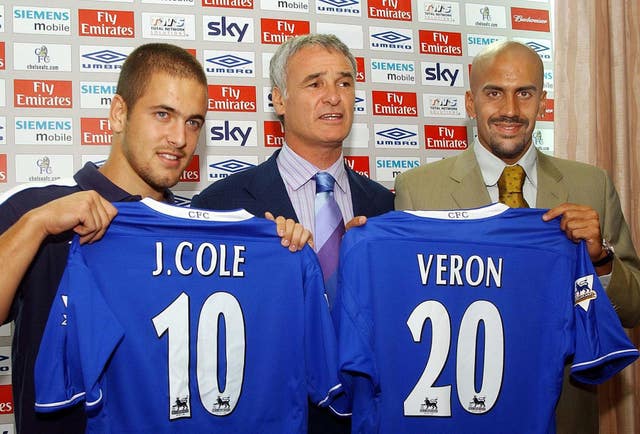
Ranieri replaced countryman Vialli and was still in charge of the club at the time of Roman Abramovich’s takeover in June 2003. His tenure included the signing of club record-scorer Frank Lampard and, following the arrival of Abramovich, a raft a of big-money transfers. Yet the well-travelled coach, nicknamed the “Tinkerman” due to regularly rotating his squad, was unable to win silverware before being replaced by Jose Mourinho. Ranieri later defied the odds to mastermind Leicester’s 2016 Premier League title triumph.
Carlo Ancelotti (2009-2011)
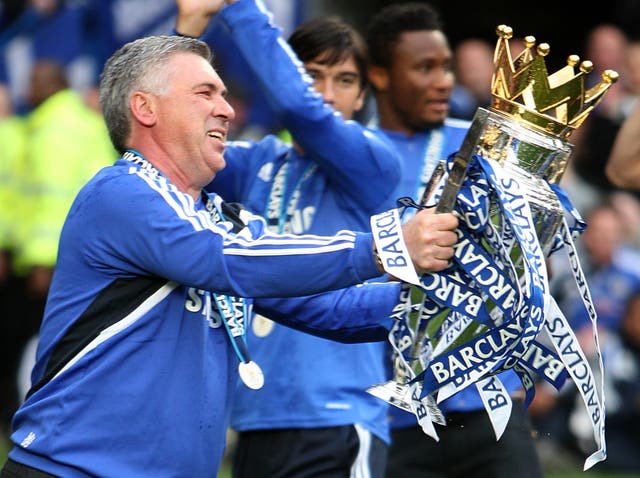
The current Real Madrid manager succeeded interim boss Guus Hiddink in 2009 after twice leading AC Milan to Champions League glory. His 2010 title-winning team became the first to score more than 100 goals in a Premier League campaign (103) before clinching the club’s maiden domestic double by lifting the FA Cup thanks to victory over Portsmouth. Defeats to Mourinho’s Inter Milan and Manchester United prevented Ancelotti replicating his previous European successes at Stamford Bridge and he was sacked at the end of a trophyless second season.
Roberto Di Matteo (2012)
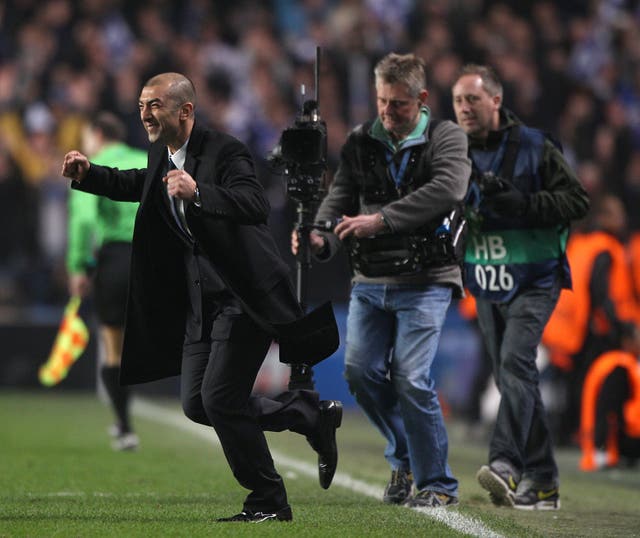
Di Matteo satisfied Abramovich’s desire for European success following the short reign of Andre Villas-Boas. Having been appointed caretaker boss in March 2012, the former Blues midfielder led the club to Champions League glory thanks to a penalty shoot-out victory over Bayern Munich at the Allianz Arena. A fortnight earlier, Di Matteo guided Chelsea to FA Cup success courtesy of a 2-1 win against Liverpool. He landed the job on a full-time basis but was sacked just eight months on from his initial appointment.
Antonio Conte (2016-2018)
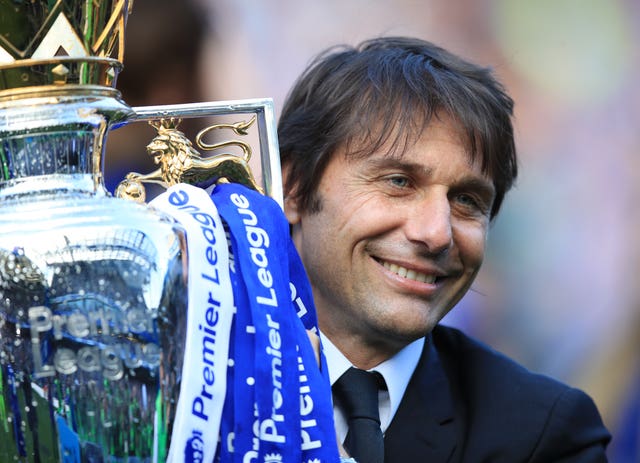
The former Juventus manager took over after two years in charge of Italy’s national team. He arrived following another interim period under Hiddink at the end of Mourinho’s second spell. Chelsea won the title in Conte’s first year and also set a new Premier League record for the most wins in a season (30 from 38 league matches). However, the Blues were denied the double by a 2-1 defeat to Arsenal in the FA Cup final. Chelsea beat Manchester United 1-0 to lift the cup 12 months later but, having finished fifth, Conte was sacked.
Maurizio Sarri (2018-19)
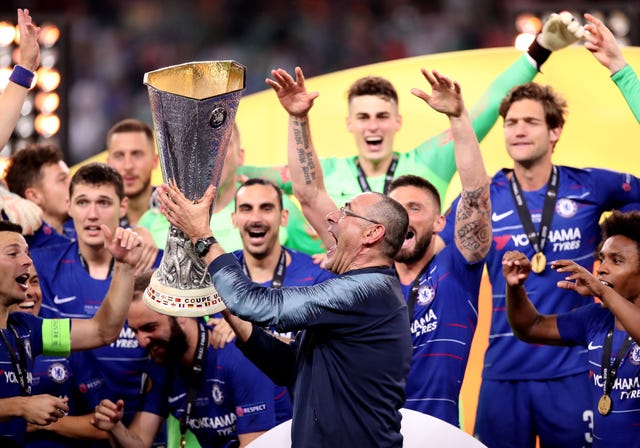
A day after Conte’s departure, Chelsea turned to Napoli boss Sarri. He became the first manager to remain undefeated during his opening 12 Premier League fixtures. The Blues finished third in the top flight but lifted the Europa League trophy after beating Arsenal 4-1 in the final in Baku. Sarri’s single-season stay is also remembered for a bizarre incident during the 2019 League Cup final loss to Manchester City when goalkeeper Kepa Arrizabalaga refused to be substituted just before the decisive penalty shoot-out.
Enzo Maresca (2024-Present)
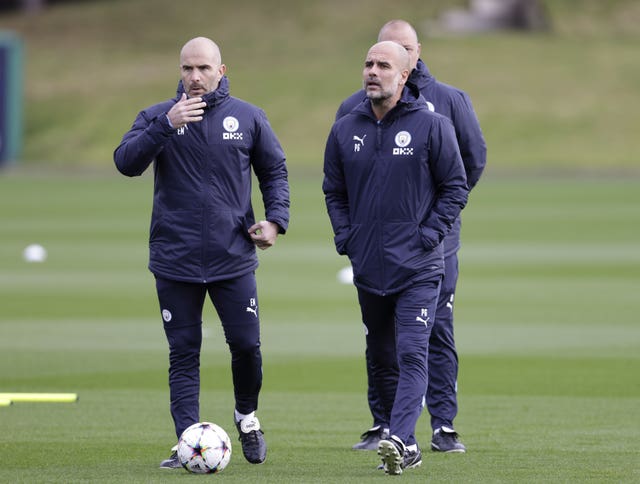
Maresca honed his coaching skills under Pep Guardiola at Manchester City. Having previously worked as City’s elite development squad manager, he returned to the Premier League champions in 2022 as Guardiola’s assistant following a brief stint in Serie B with Parma. The former West Brom, Juventus and Sevilla midfielder made his mark this term by guiding Leicester to the Sky Bet Championship title. He inherits a young Chelsea squad packed with potential but will surely have to hit the ground running as he bids to build on the work of predecessor Mauricio Pochettino.

